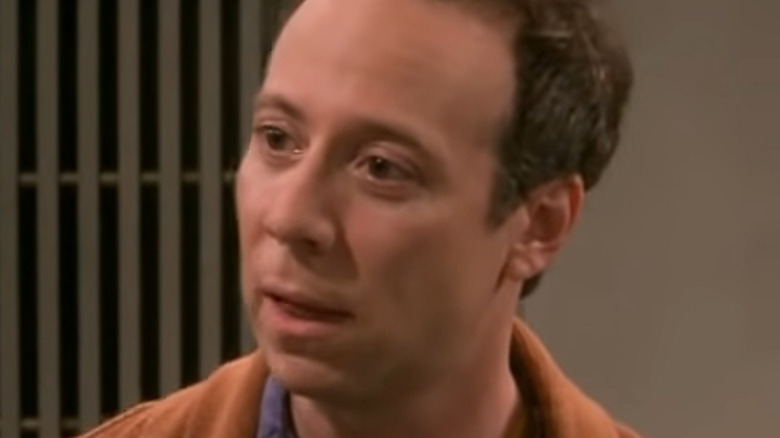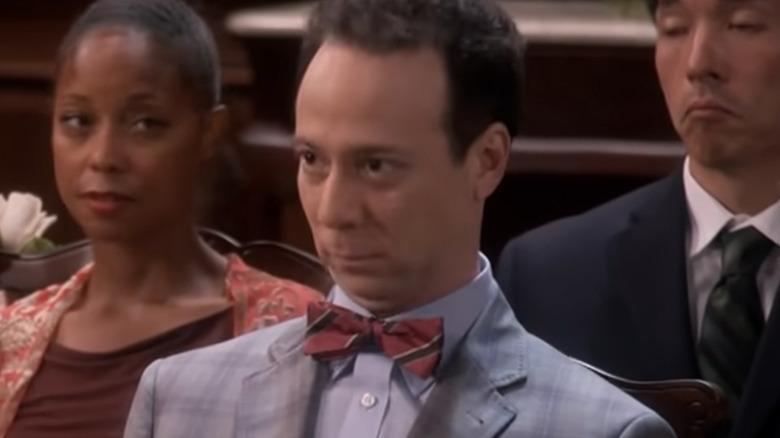The Stuart Scene That Went Too Far On The Big Bang Theory
Comic book store owner Stuart Bloom (Kevin Sussman) is something of a divisive character among fans of "The Big Bang Theory." Much of the comedy involving Stuart's character, notably, frames him as pathetic. While plenty of classic sitcoms include similarly pitiful characters in their main casts, fans have criticized "The Big Bang Theory" for failing to counterbalance its treatment of Stuart with any sort of significant character development. In fact, some viewers who enjoyed a markedly more confident version of the character in the show's earlier seasons wound up hating him as the series progressed.
On the other end of the spectrum, however, a poll asking "Big Bang Theory" fans to vote for their favorite side character crowned none other than Stuart as its winner. So, while Stuart may have ended up as little more than a sad foil to the series' leads, a significant number of viewers seem to have enjoyed that version of his character all the same.
With that in mind, one scene from "The Big Bang Theory" Season 5, more than any other moment in the series, goes a little too far in undermining Stuart's earlier, more cheerful demeanor in order to accentuate his eventual patheticness.
Stuart undercuts his own accomplishment
At one point in Season 5, Episode 7 of "The Big Bang Theory," titled "The Good Guy Fluctuation," Leonard (Johnny Galecki) asks out a patron of Stuart's comic book store named Alice (Courtney Ford). She reciprocates his interest, and Stuart congratulates Leonard for supposedly being the first guy to successfully ask out a woman in his comic book store.
As one user pointed out in a Reddit thread about this scene, however, this is not only untrue, but the last time viewers saw a man pursue a woman romantically in the comic book store was none other than Stuart asking Penny (Kaley Cuoco) on a date. The thread goes onto argue that, beyond a simple continuity error, this claim retcons the earlier, more confident version of Stuart in order to accentuate the patheticness that comes to define his character as the series progresses.
When the writers of "The Big Bang Theory" decided to nullify Stuart's past romantic success, then, they went one step beyond their normal approach and outright pretended like the prior, confident incarnation of the character never existed, overwriting a version of Stuart many viewers happened to enjoy.

